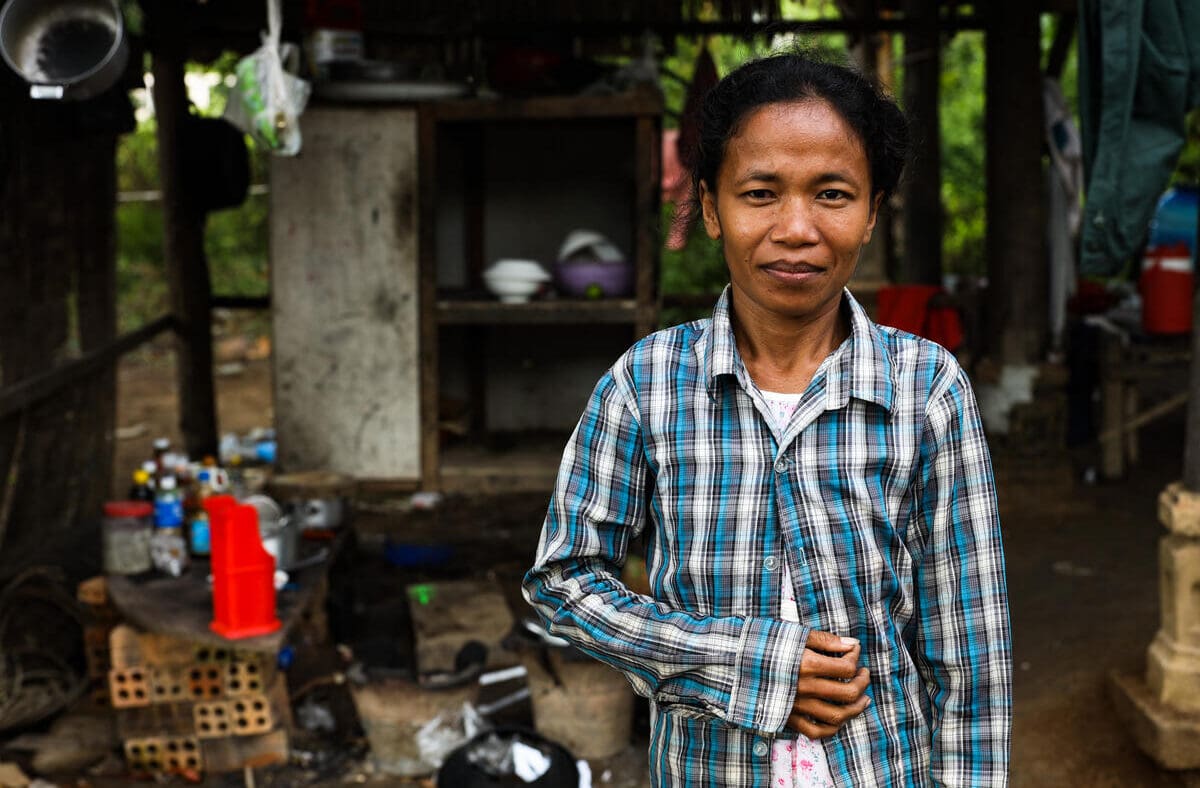
CAMBODIA:
Growing But Unequal
Cambodia has achieved sustained economic growth over the past two decades. Despite substantial progress, socio-economic and gender inequalities persist, hampering access to a nutritious diet. Food security and nutrition face challenges caused by shocks, a rapidly changing food environment and inefficiencies in the food system.
Undernutrition is widespread in Cambodia for many reasons: children are not eating enough food, and what they do eat doesn’t contain the nutrients they need to grow and develop. Dietary deficiencies in zinc, iodine and B-vitamins also widely affect women of reproductive age and children. Undernutrition is estimated to cost the country approximately 1.7 percent of its annual GDP.
of kids under 5 are stunted
of Cambodians are under-nourished
most vulnerable country to natural disasters
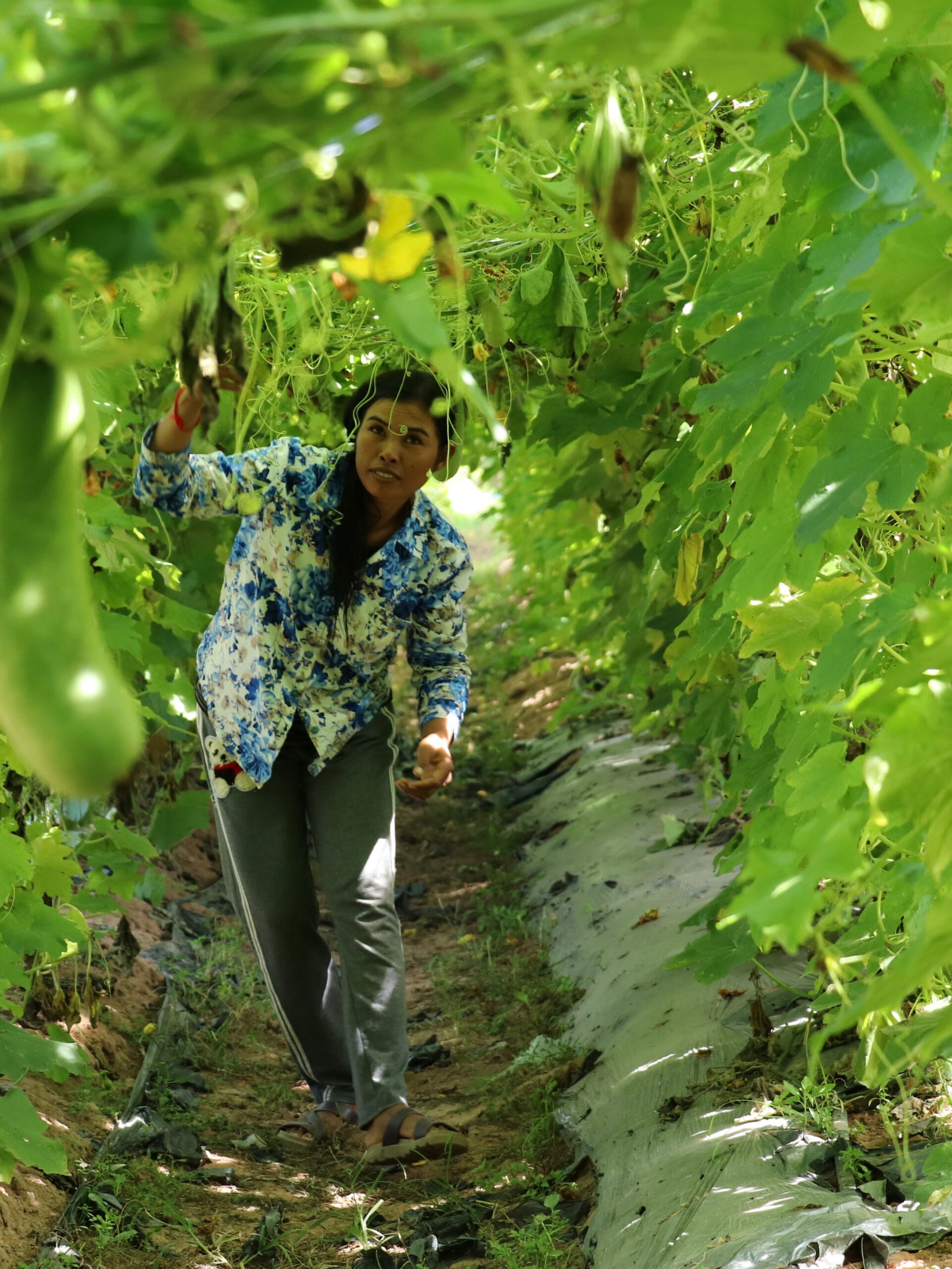
RURAL AND CLIMATE SHOCKED
Seventy-nine percent of the Cambodian population lives in rural areas and they are on the front-line of a changing climate. Floods and droughts frequently threaten the food system and will increase in frequency and intensity in the future. Cambodia is currently ranked the eighth most vulnerable country to natural disasters, so supporting communities to prepare for and respond to disasters is key to ensure they can access nutritious foods year-round.
But 1979, we’ve supported Cambodian families to meet their emergency needs and enhance the long-term food and nutrition security of vulnerable households and communities.
We work with the Government of Cambodia to strengthen capacities and systems that can be fully nationally owned. Our goal is that all Cambodians can meet their nutrition needs and the country can reach SDG2 – a world with Zero Hunger by 2030.
WFP’S Work in CAMBODIA
We’re making sure Cambodian families have access to nutritious, safe and diverse foods, with a shift towards strengthening national capacity to improve food security and resilience, and effectively mitigate and respond to environmental shocks.
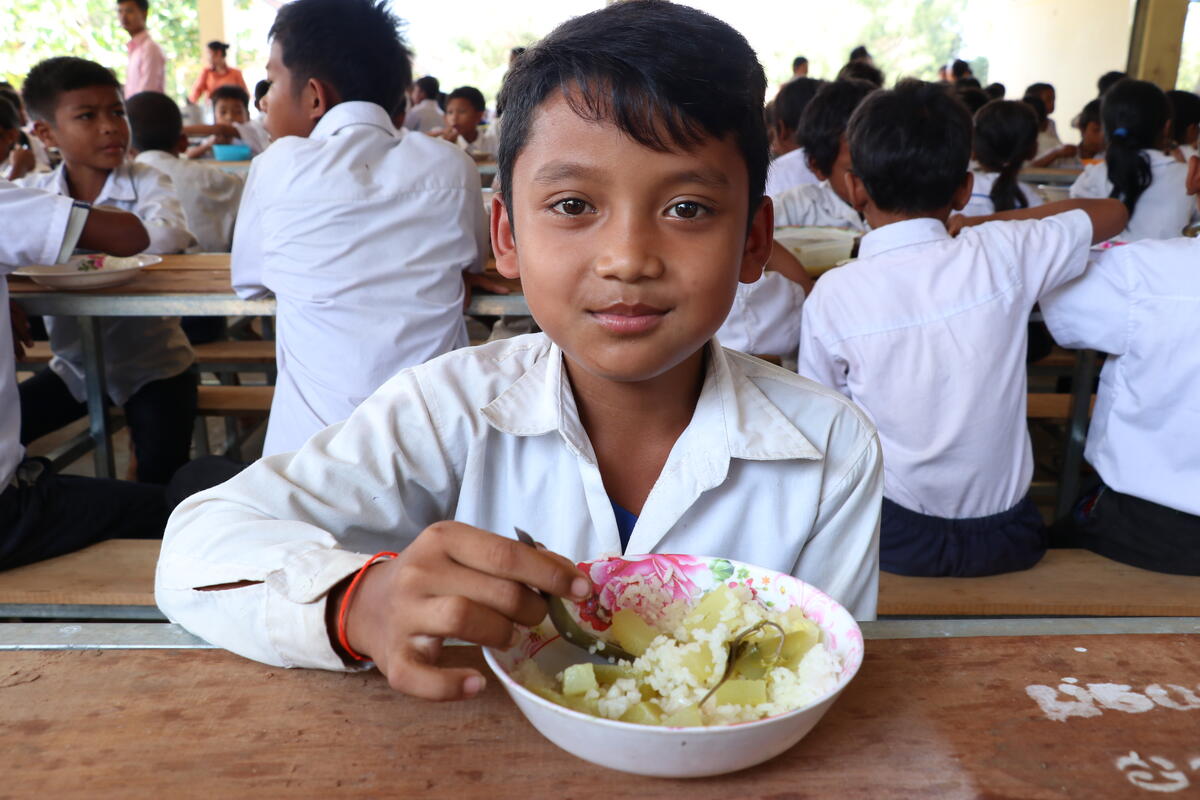
We work with the Ministry of Education, Youth and Sport and the National Social Protection Council to promote access to quality education, nutritious diets and social assistance for children at pre-primary and primary school. The school meals program will transition to a nationally owned home-grown school meals model that sources ingredients from local farmers, incorporates food quality and safety, encourages community ownership, and supports local economies.

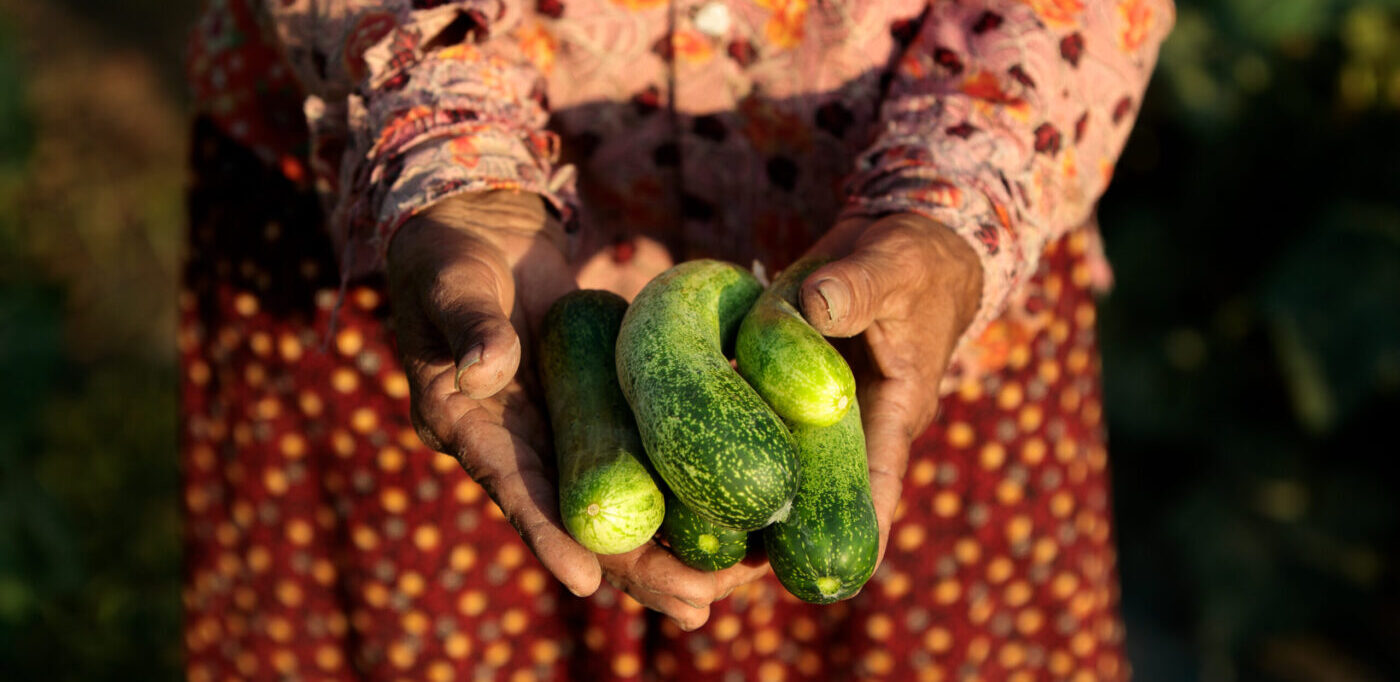
We also work closely with the Government to create climate-smart plans that will help communities become more resilient to climate shocks. Working with partners like the Ministry of Agriculture, Forestry and Fisheries, we leverage our experience in data management platforms to facilitate the flow of information on agriculture, markets and climate services to end users at subnational level.

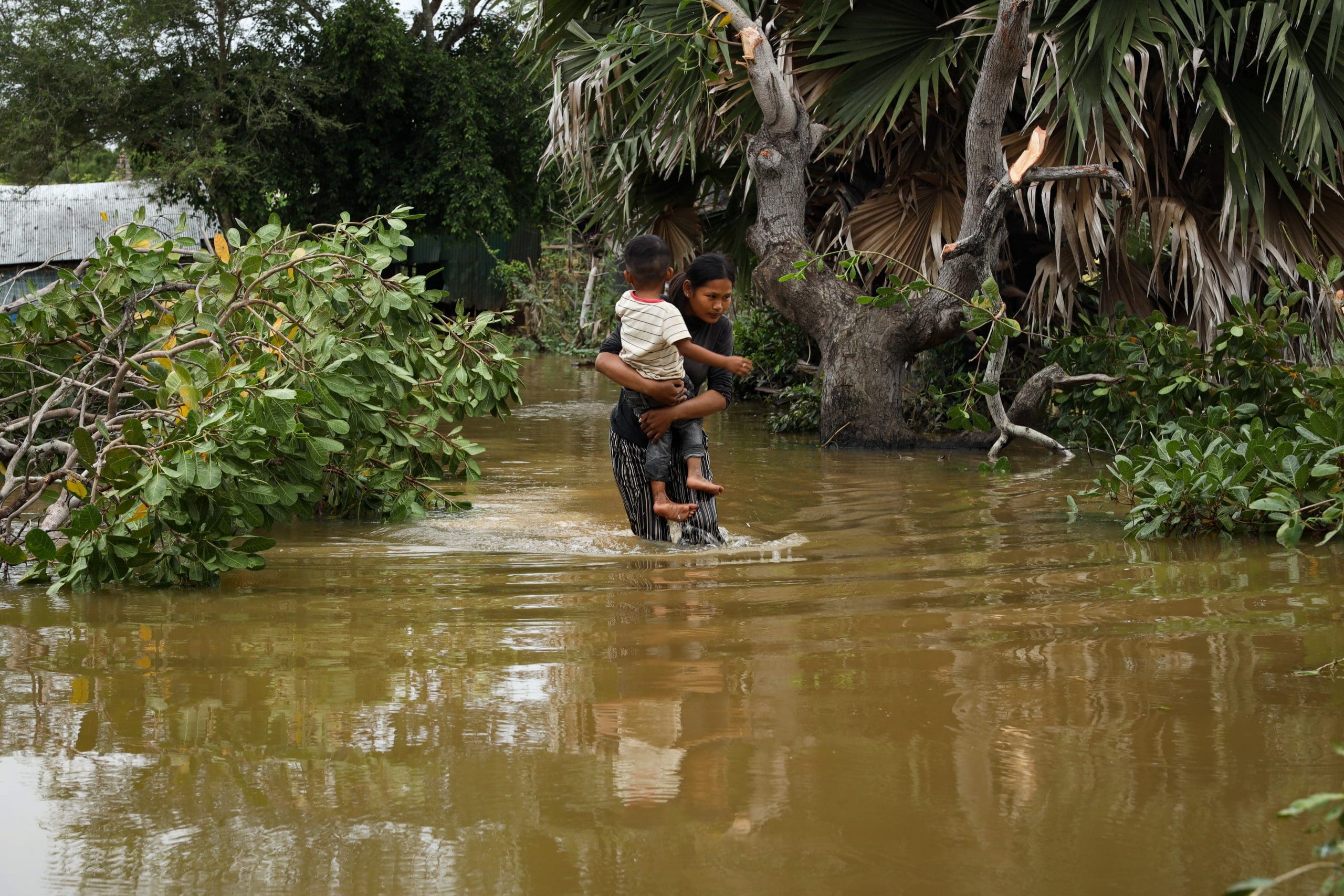
We work closely with partners to strengthen national capacities and develop tools to improve preparedness for weather extremes. We also provide emergency assistance and early recovery supports to vulnerable households affected by natural disasters, while contributing to develop and operationalize the national shock responsive social protection framework to enable the Government to respond to multilevel shocks in a timely and efficient way.

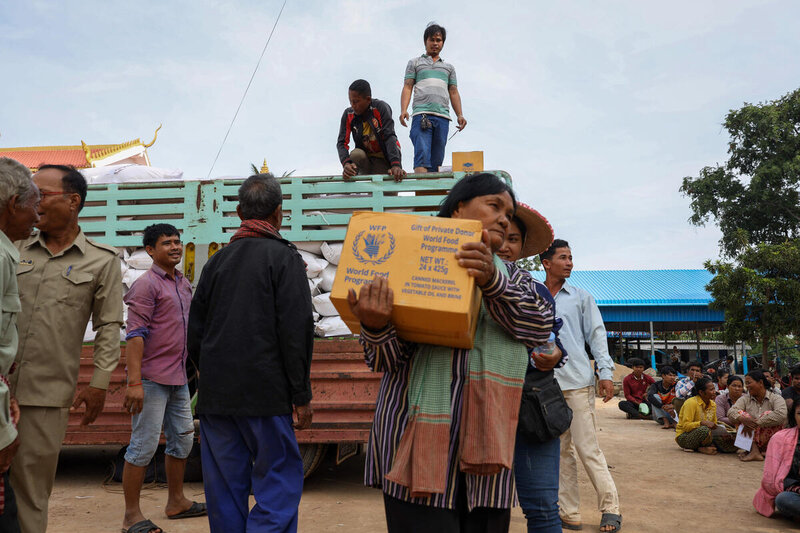
We team up with the Green Trade Company and the Ministry of Commerce to explore on-demand supply chain services for partners (including storage services, warehouse management, transportation, handling, and clearance). We also engage with humanitarian and development partners to identify supply chain gaps and strategies. And we maintain warehouse spaces, services and transport capacities so they’re ready to support any emergency response.

Help Save Lives by Sending Food
You can help deliver food to vulnerable populations in Cambodia and other countries by donating to WFP.
What’s happening in Cambodia?
Read the latest news updates and stories from Cambodia:

